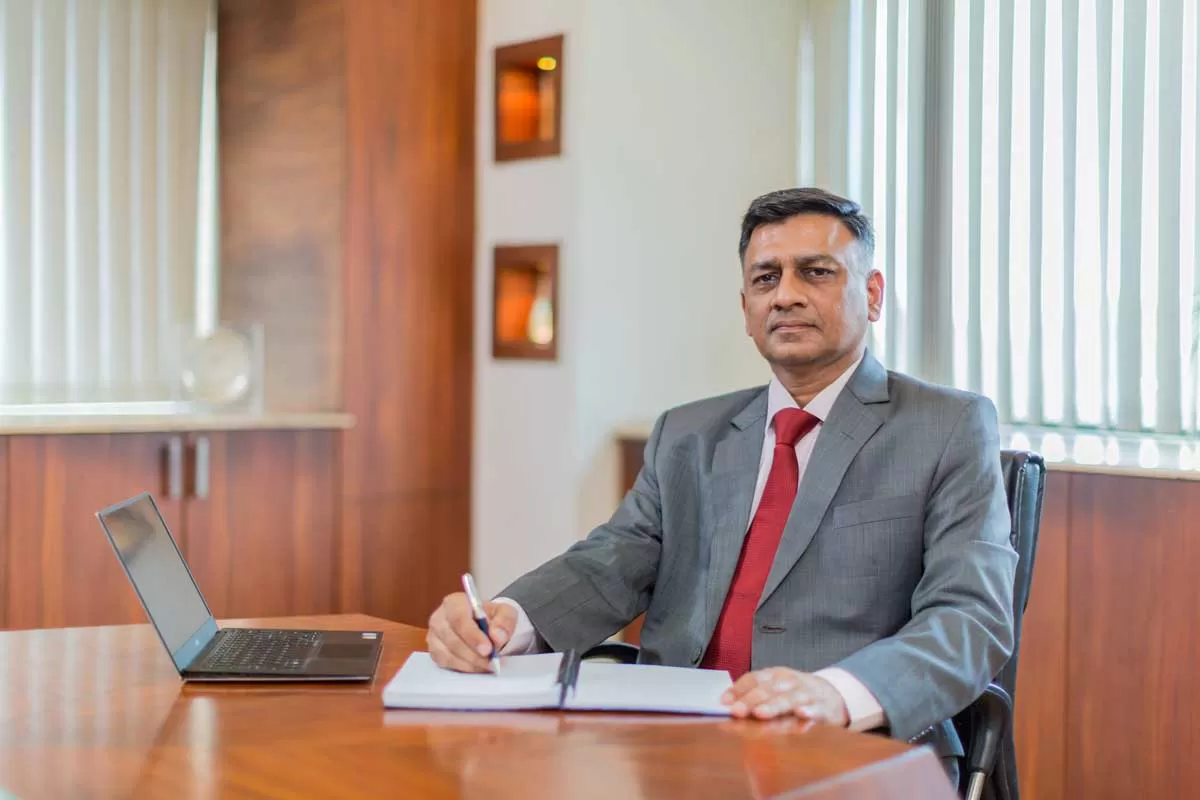West Bengal-based EPC firm Rahee Infratech has been instrumental in landmark projects such as the Char Dham Rail Link Project, Udhampur-Srinagar-Baramulla railway link, Chenab Bridge and Jiribam-Imphal railway line. The company has completed 105 major railway bridges and constructed over 280 km of ballastless tracks for railways and metros. Also, the company won the 2nd Fastest Growing Construction Company Award in the Small Category at the CONSTRUCTION WORLD GLOBAL AWARDS 2024, held in Mumbai. Pradeep Khaitan, Chairman & Managing Director, shares more about the company, its projects and plans….
Rahee Infratech recently completed the longest rail tunnel in India. Could you share your experience while executing this landmark project?
The 272-km Udhampur-Srinagar-Baramulla rail link project has been under discussion and implementation for the past 25 years. However, in the last 10 years, things fell into place after the final route was decided. The geographical and geological conditions of the Himalayan terrain made the project challenging. About 70-75 per cent of the railway line, approximately 80-90 km, is through tunnels, making this a significant challenge. The environmental, geopolitical and topographical conditions made this project very tough. Rahee was awarded 70 km of ballastless track work, using the Pandrol ‘booted block’ fastening system, in the year 2021. The success of this project came due to good cooperation between the Northern Railways, state government, IRCON and KRCL (implementing agencies) and dedicated effort by our team. Today, Vande Bharat trains are planned to operate here, connecting the region with the rest of the country.
What are the latest technologies implemented by the company?
On the Jammu-Kashmir project, we introduced technology from our associate company, Pandrol. Although they had been using this technology in Spain for years, they couldn’t expand beyond their borders. Rahee was able to manufacture high-quality concrete booted blocks onsite, adapting Pandrol’s designs and successfully implementing the booted block system for the first time in India. Now, after completing 70 km, we have secured contracts for an additional 100 km.
Another major development is integrating Japanese technology in the Mumbai-Ahmedabad high-speed rail project for track fastenings. We are proud to say that nearly 80 per cent of the fastening components were made in India, manufactured and supplied by us, and this successful integration has set a precedent for future projects. Further, we have developed patents for products like switch-expansion joints, which Indian Railways has adopted. We’re also enhancing our manufacturing capabilities with automated forging lines and CNC machines to ensure world-class standards.
You mentioned the Mumbai-Ahmedabad high-speed rail project. What makes it possible for Rahee to execute such large-scale projects on time?
These projects are executed by multiple companies working together, with authorities overseeing the coordination. The key is integration and cooperation, ensuring everyone works towards a common goal. Under the leadership of the National High-Speed Rail Corporation, we have managed to meet deadlines. Japanese consultants also contribute valuable expertise. Our background and experience with integration and manufacturing give us an edge in managing these large-scale projects. Our manufacturing facilities have been modernised, with efficient quality control processes and training of manpower to deliver fastenings for this prestigious project.
How is Rahee Infratech addressing the skill development gap within the industry?
Skill development is central to our work culture. We focus on training our workforce through global associations and encourage them to gain practical experience abroad. Additionally, we have a skill development programme within the company, which helps employees upgrade their skills continuously. We also emphasise internal promotion, ensuring that our people are well-versed in both the technologies and site-specific challenges. The Government’s apprenticeship programme has also played a role in improving skills and we actively participate in it. However, there is still a lot to be done and we hope industrywide collaboration can help bridge the gap.
How does the company ensure financial viability and effectively manage cost escalations in large-scale projects?
Our strategy involves careful yearly planning and identifying key projects. We’ve seen significant investment from Indian Railways in recent years, with a Rs 2.5 trillion investment planned for infrastructure. We aim to maintain a 20-25 per cent increase in our topline while ensuring that our EBITDA margins remain healthy. We are focused on securing projects and strengthening our financial position to take on future opportunities. Most of the contracts have an inbuilt price escalation clause, helping us to mitigate escalation.
How does the company ensure environmental sustainability, particularly in urban railway projects where the environmental impact is high?
Environmental sustainability is a key focus and we ensure that our products, such as noise and vibration solutions, and site operations are eco-friendly. We encourage the use of recycled raw materials as well as recyclable products after their lifecycle. We’re also aligning ourselves with global environmental standards and developing components, implementing sustainable manufacturing processes that contribute to a greener future. The Union Government’s commitment to net-zero emissions by 2070 is something we fully support and we are continuously improving our products to meet these standards.
Are there any plans for the company to expand into international markets?
Yes, we have started exploring international markets, particularly after establishing ourselves successfully in India. Our focus in the initial years has been on excelling in the Indian market; now, we are looking at international projects with the hope of gaining success abroad.
What are the company's long-term and short-term growth plans? Where do you see the company in five years?
In the short term, we aim to expand our presence in the infrastructure sector, especially in railways. We are already involved in bridge construction and track establishment, and we want to grow further in these areas. We also intend to explore more challenging projects that could offer better profitability. Over the next five years, we aim for a 20 per cent compounded growth rate, targeting a turnover of about Rs 12 billion. We also plan to participate in EPC and PPP projects and are leveraging our financial base for future expansion.




















